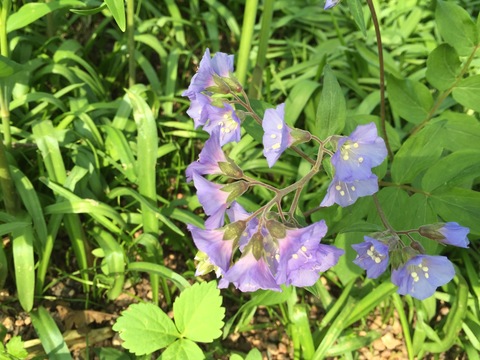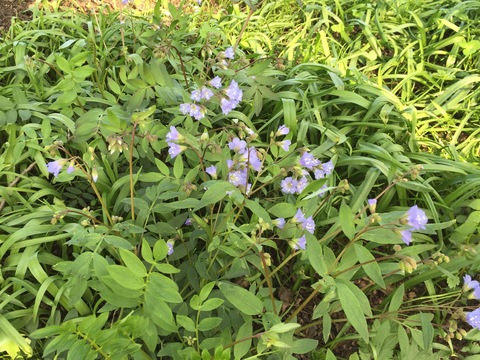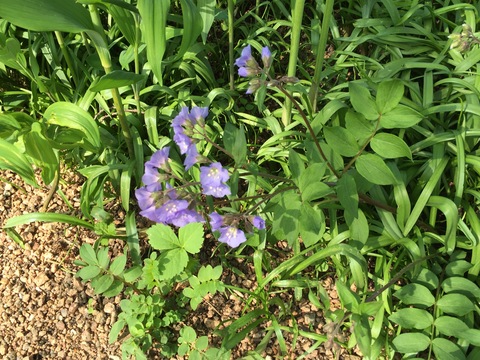 North Shore Plant Club
North Shore Plant Club
- Shop For Plants
- Search Plants
- Resources for Gardeners
- Color Wheel of Plants
- Interactive Landscapes
- Photos of Planters & Hanging Baskets
- December Photos from Our Community
- Botanic Gardens: Chicago & Beyond
- Local Nurseries
- Upcoming Plant Events
- Articles about Plants & Gardening
- Chicagoland Garden Calendar
- Explaining Plant Container Sizes
- Thrillers, Fillers & Spillers
- Join Free!
- Mundelein
Solomon's Seal (Polygonatum biflorum)
|
|
| Deciduous Perennial in the Asparagaceae Family | |
|
Polygonatum biflorum, commonly known as the Small Solomon's Seal or Solomon's Plume, is a charming, woodland-dwelling perennial native to the eastern and central regions of North America. This delicate plant is prized for its arching, leafy stems and pendant, bell-shaped flowers that dangle gracefully along the stem. Growing to a height of 24-36 inches, Polygonatum biflorum is characterized by its lush, green foliage and distinctive, ridged stems. The plant's leaves are oblong in shape, arranged alternately along the stem, and can reach up to 6 inches in length. In late spring to early summer, the Small Solomon's Seal produces clusters of small, white or greenish-white flowers that hang in pairs along the stem, creating a delicate, waterfall-like effect. After the flowers fade, Polygonatum biflorum develops spherical, bluish-black berries that ripen in the fall, adding a pop of color to the plant's foliage. These berries are an important food source for various wildlife, including birds and small mammals. Preferring partial to full shade and moist, well-drained soils, the Small Solomon's Seal thrives in woodland settings, shaded borders, and naturalized areas. Its clumping, rhizomatous growth habit makes it an excellent choice for groundcover, edging, and erosion control. Beyond its ornamental value, Polygonatum biflorum has a long history of use in herbal medicine, with the plant's rhizomes and roots being used to treat a variety of ailments, including skin conditions and digestive issues. Whether admired for its delicate, pendulous flowers, its attractive foliage, or its historical significance, the Small Solomon's Seal is a beloved and versatile addition to any shaded garden or natural landscape. |
|
Plant Data | |
| Mature Size | 24 - 36 inches tall. 12 - 18 inches wide. |
| Sun Exposure | Partial Sun - Full Shade |
| Moisture Tolerance | Medium - Wet |
| Zones | 3a - 9b (Usually hardy to -40° F) |
| Tags | Deciduous, Full Shade, Medium, Partial Sun, Perennial, Rabbit Resistant, Wet |
| Bloom Period | May - July |
| Flower Color | Greenish White |
More Info from Experts |
|
Photos of This with...Black Alder |
|





| |
|
Want More
photos of this plant? Try
Google Image Search!
|
|
Pricing and Availability HistoryClick a label to toggle visibility for that size
|
|